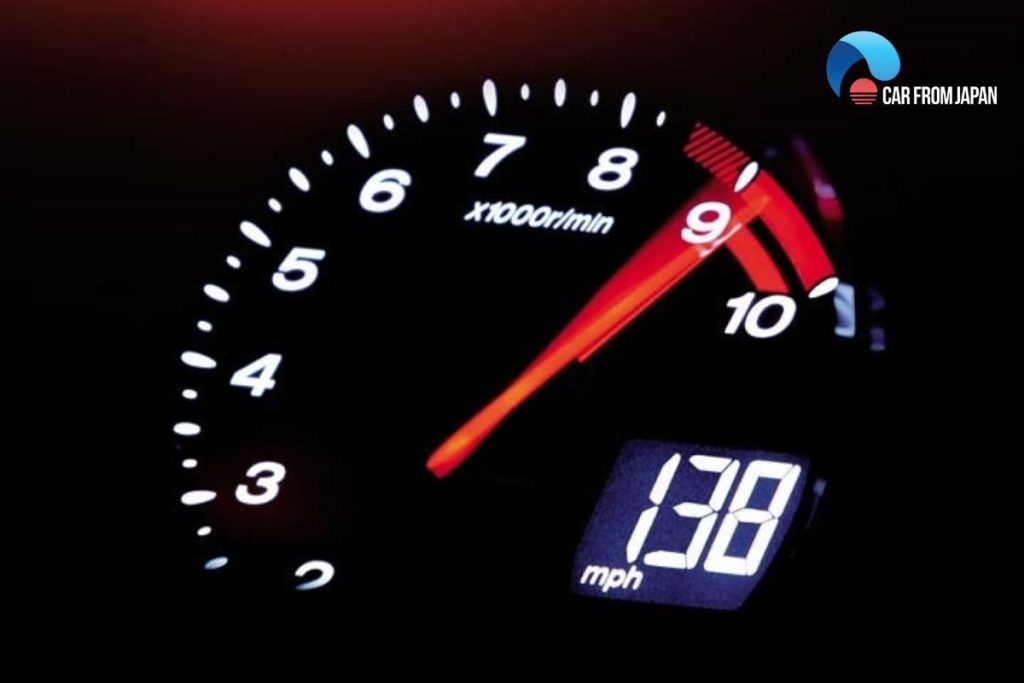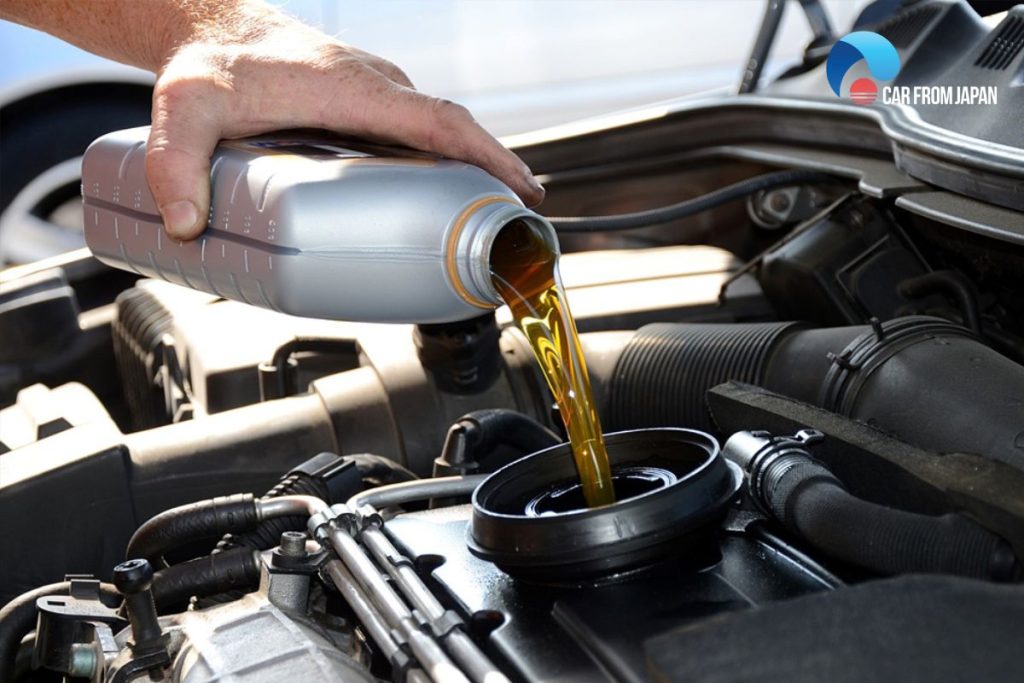Revving your engine is an interesting way to show off just how powerful the car is. And it’s more exciting than hearing the sound of a car revving When you are sitting behind the steering wheel.
The revving engine is super cool but many racers wonder: Is revving your car bad because nothing is more important than keeping your partner in a good condition? Keep reading to find the truth!
Contents
Rev A Car: What Does It Mean?
Surely the racers are too familiar with the term “rev car engine”. To understand simply, revving a car is the act of accelerating the speed of your engine and the result is a loud sound will be produced.
Or if you are familiar with RPM (revolutions per minute), revving a car engine means that you will increase this RPM when your car is in neutral or park.
Every car engine has been designed to have a limited rev speed to make sure safety for the drivers.
The faster you rev the engine, the more fuel is burned. When revving your car engine, its speed increases when you press the accelerator. At that time, your engine will start up, rev up the gas, and the car sped down the slope.
It is not too difficult to encounter situations where the driver revs when stopping at a red light while driving, or even when the car is parked. Why do drivers want to do that?
As we already know, the biggest benefit of the high-revving car engine is capacity. Increasing torque or maximum RPM and the power will increase.
For example, if your car has a 2.0-liter engine, you will need a large amount of engine power to produce high-capacity figures. On the other hand, just designing for higher revs means you’ll go up the amount of power generated.
Another simple reason is that some drivers rev their engines to show off a loud noise, to enjoy the thrill, or satisfy their passion for high speed.
When I release the clutch pedal, I also depress the gas pedal. This sequence of actions leads to a smooth movement from stopping to accelerating.

How To Rev Your Engine?
You had some basic knowledge about the revving engine definition, let’s move this part to know how to run your engine.
Step 1: Turn on your engine
Take your key and start your engine, but don’t forget to spend a little time (about 20-30 seconds) for your engine to warm up.
You should look at the car gauge (tachometer) to check the RPM that represents the speed of your engine when your engine is idling.
When your car is idling for a short time, this action will allow the engine oil to circulate in your engine for lubricating machine parts.
Step 2: Press the gas pedal
After waiting for about 10-30 seconds for idling, you will press your foot down on the accelerator in either park or neutral.
At that time, you will see the needle on your car gauge is going to move up and the engine is gone be louder.
When you start revving, please note that you shouldn’t hit on the gas immediately. You shouldn’t stop stepping on the gas pedal if your RPM closes to the red line. Don’t forget to check your tachometer to follow the parameter.
If your car is in a neutral or park situation when pressing on the pedal to rev, you can hear the exciting sound of a revving engine.
The power will then rev your engine, but it doesn’t transfer to your wheels. That’s why your car won’t move forward or backward. The more you press the gas pedal, the higher your engine will rev.
Step 3: Release the accelerator to return the idle RPM
After having a funny revving engine, you can use the clutch to shift into manual gear or step the brake and shift into automatic. And you can continue driving as usual.
While driving, you can only just rev the engine when your car has a manual transmission.
Related Post: High RPM When Accelerating: Causes & Solutions
Is Revving Your Car Bad?
“Is revving your engine bad?” This question has created a debate and attracted much concern from many drivers. What is our answer?
Does it depend on how you consider and define “revving engine” What will happen when you rev your car frequently or unnecessarily?

Reduce the engine performance
Many drivers mistakenly think that just revving the car while driving or in neutral, park condition also will damage your engine. But wrong, it’s your action. For example, if your car is idling at 1,000 rpm.
So you want to warm it up quickly, so you keep revving it up to 3,000 RPM or over the red line (What is the redline? Simply, it’s the maximum speed in your RPMs that your engine can run safely without causing damage to itself).
In that situation, this action will make your engine wear out faster because the oil won’t have enough time to reach its optimal operating temperature before you add much pressure to the metal of the engine.
Did you know that 90% of engine wear outcomes from starting the cold engine regardless of the temperature, and the lubrication of the engine oil?
Damage car rods
Damaging rods can be the maximum risk that revving causes to your engine when you rev your car frequently. The main function of rods is to connect the crankshaft to the pistons. The popular reason that makes rods go bad is fatigue.
Over-worn will cause them to be brittle. Engines with high rpm will put a lot of pressure on the connecting rod, a broken connecting rod will be the consequence.
As connecting rods wear out, it will lead to a bunch of other parts in the engine being affected, your handling will reduce, and you will hear the clicking noise or vibration.
Bad clutch
The clutch is an indispensable part of vehicles that use a manual transmission. It is responsible for transmitting and disconnecting capacity from the engine to the transmission.
Revving the engine frequently will lead to excessive heat or friction and make your clutch damage. It also adds extra pressure on the clutch assembly Which causes the clutch to quickly wear out and burn out.
Cost more fuel
The more you rev your car in neutral or park condition, the more fuel you need to pump into the gas tank. With the fuel price trending up like now, this action will cause a significant cost to your budget.
Revving your engine in neutral will cost more fuel than when you drive normally. Why?
When higher amounts of air and fuel are injected into the engine, pressure will increase and as combustion increases, the vehicle will need to inject more fuel to keep the flame going.
When you increase RPMs, your engine will need more gas. However, all fuel will not be burnt completely because the combustion is not at 100%.
Unburnt fuel will dilute the protective oil layer of the engine. And reducing your engine performance.
To answer the question: Can revving your engine damage it? 99% will be “Yes” You do revving the engine a lot, which means that your piston has to work with a high frequency which will create more friction between the cylinder and the pistons.
And of course, your engine will not work effectively in these situations. However, sometimes revving a car is not bad as you think if you keep up with the proper maintenance and have good driving habits.
Read More: Delayed Shifting When Accelerating: 6 Best Ways To Cure It!
Closing Thought: Is Revving Your Car Bad?
Owning a car means you have to pay attention to the maintenance and care of a huge engine block. However, you may not know many habits in daily car use that will silently damage your car.
And revving the car engine frequently or improperly can be a bad habit to reduce the lifespan of your car. It will be a fun activity for drivers but it is also an enemy of your car.
Constant revving causes unnecessary heat and friction in the car’s engine and puts pressure on other components such as the tires.
As a result, maintaining an optimal and constant driving speed reduces stress on a car’s engine components, thereby ensuring a longer engine life. But you can absolutely rev your car, but please note some tips.
Make sure to warm up your car before revving
The circulation of the oil is the first thing that happens as soon as the car starts. This circulation takes about a minute or two and should be done without disturbing the engine.
When the circulation is complete, the driver can accelerate and move. If your engine is not allowed to warm up long enough before revving, it will cause unnecessary friction on the components and damage the engine.
Moreover, this situation occurs frequently, which can lead to damage to expensive car components.
Change oil periodically
When revving the car engine, the combustion will happen more frequently, there will be a lot of soot, and dirt will accumulate in your engine and make the oil contaminate. Changing the oil periodically will be the best way to protect your engine.

FAQs on Revving Cars
Does revving in neutral or park damage the transmission?
Not directly. But sudden high revs followed by shifting into gear can strain mounts and transmission components due to the torque shock.
Is it bad to rev your car before turning it off?
Yes, especially for turbocharged engines. Revving right before shutdown can leave the turbo spinning without lubrication, increasing wear.
Can revving help “blow out” carbon buildup in the engine?
Occasionally revving under load (while driving) at high RPM can help clear minor deposits, but revving at idle won’t do much and may even cause harm.
Is revving in cold weather worse than in warm weather?
Yes, cold oil flows slower and doesn’t lubricate as effectively. Revving a cold engine increases metal-on-metal wear, especially in the first 2–3 minutes after startup.
Is “rev matching” bad for your engine or clutch?
No. In fact, proper rev-matching in manual cars reduces clutch wear and smooths downshifts.
But constant over-revving during attempts can shorten engine life.
Check out this video from Engineering Explained to learn more about what is Rev Matching and why is it necessary to rev match?
Hopefully, through this article, you will have more useful information when revving your engine.
For more insightful Car Maintenance tips, follow Car From Japan today!



